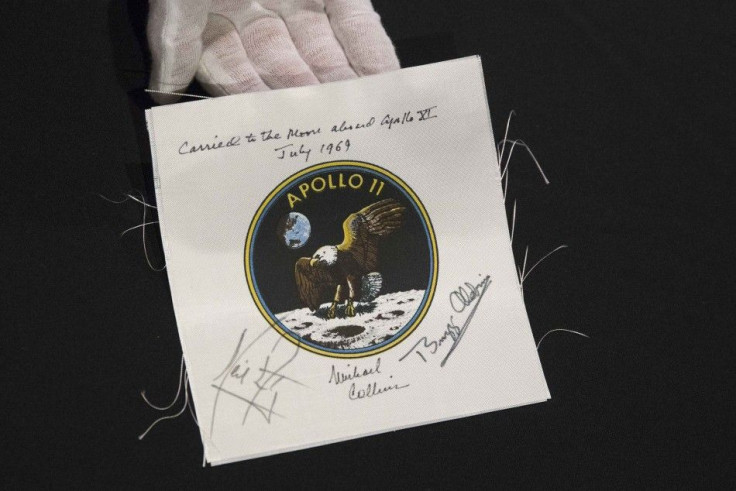NASA Celebrates 45 Years of Moon Landing
A Step by a Man, A Giant Leap for Mankind

July 20, 2014 marked the 45 anniversary of The National Aeronautics and Space Administration (NASA)'s moon landing. It was this very same day in 1969 that Apollo 11 astronauts Neil Armstrong and Buzz Aldrin became the first humans to set foot on the moon, leaving the world in amazement. Forty-five years later, the immense progress of NASA is still astounding.
Armstrong's family said in a statement after his death in 2012 to those who want to know how to honour Neil that their request was simple, "Honour his example of service, accomplishment and modesty, and the next time you walk outside on a clear night and see the moon smiling down at you, think of Neil Armstrong and give him a wink."
In admiration of his giant leap, NASA planned a renaming ceremony of the historic "operations and checkout building" at Cape Canaveral in Florida, the place where Armstrong resided while his spacecraft was being prepared before launching to the moon. Aldrin and Michael Collins, the Apollo 11 command module pilot who also orbited the moon, will be present for the celebrations.
NASA said in a statement that the course of history changed in 1969 when Neil Armstrong took the small step onto the surface of the moon. The years that followed saw immense progress and development, the world witnessed a space age of scientific, technological and human research on which they have built the modern era. "The Apollo missions blazed a path for human exploration to the moon and today, we are extending that path to near-Earth asteroids, Mars and beyond," it added.
NASA engineers are now working on a new space transportation capability that can travel and send humans farther from the Earth and deeper into space; the Orion spacecraft and space launch system (SLS) heavy-lift rocket will be the most advanced space vehicles to have been ever built. They declared, "Around 2019, we will launch a robotic mission to rendezvous with a near-Earth asteroid. The spacecraft will either capture an asteroid or retrieve a boulder off of a much larger asteroid and then redirect the asteroid mass to a stable orbit around the moon."
NASA also announced that in 2020, a new rover will be sent to Mars to follow in the footsteps of Curiosity. It will search for evidence of life and pave way for human explorers, they added with pride.
It has been 45 years since these developments have gripped the world, and it was that first step on the moon which actually was "a giant leap" for mankind.
NASA Administrator Charles Bolden, Kennedy Center Director Robert Cabana,and Apollo 11 crew members Collins and Aldrin will also be present for the celebrations.





















